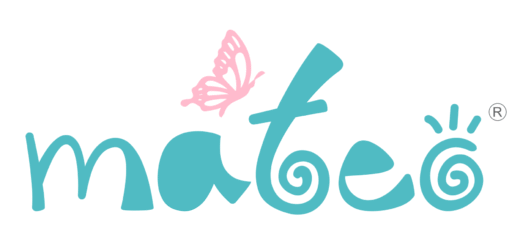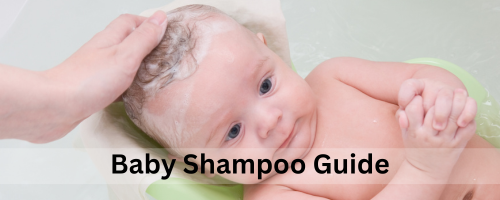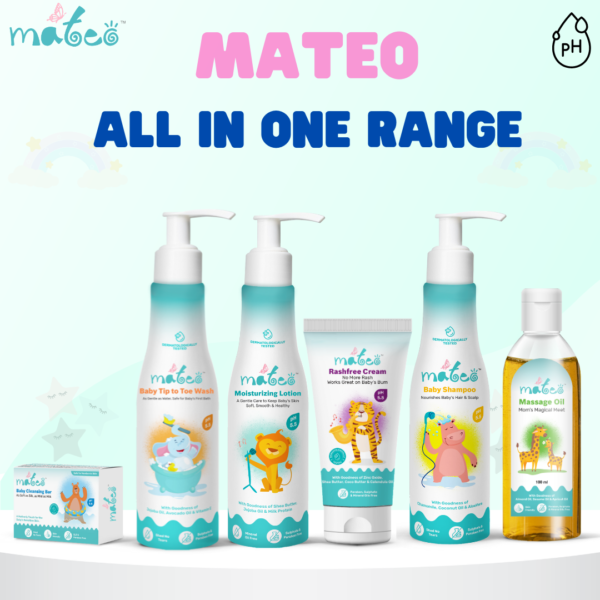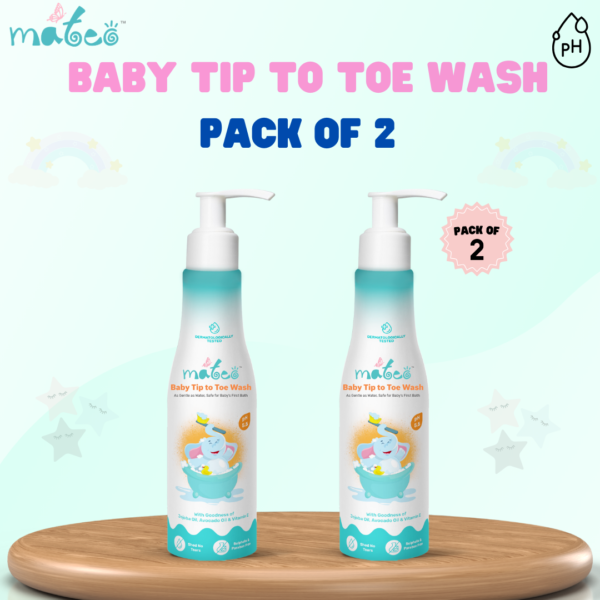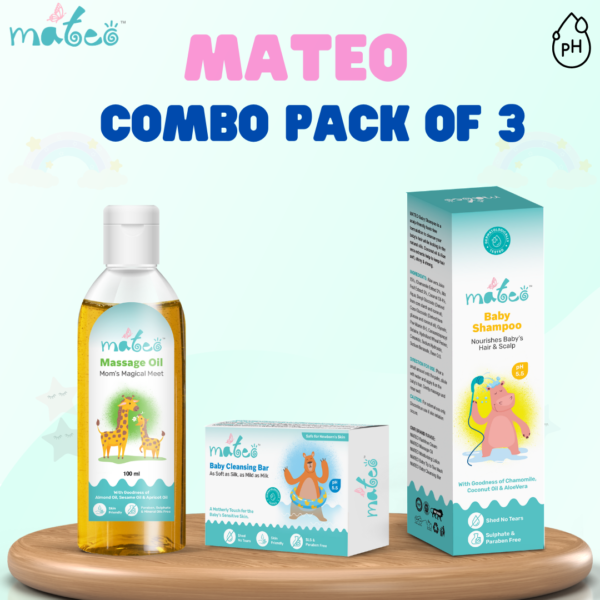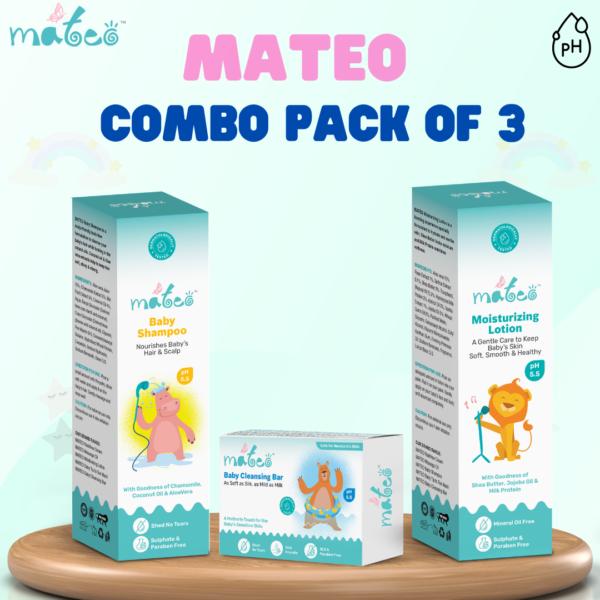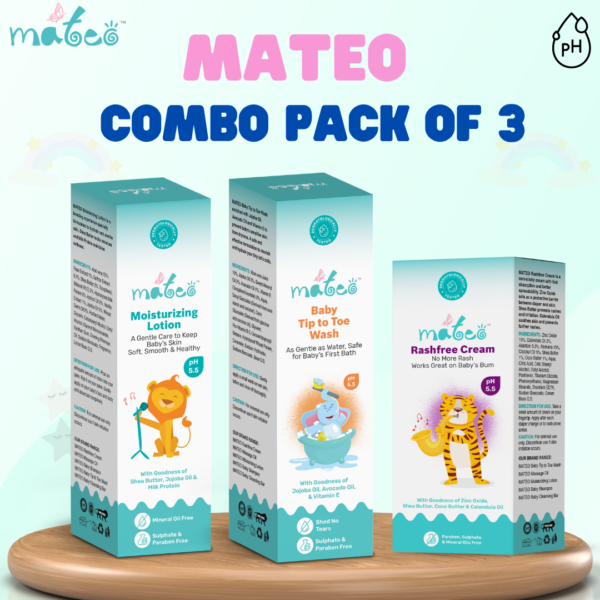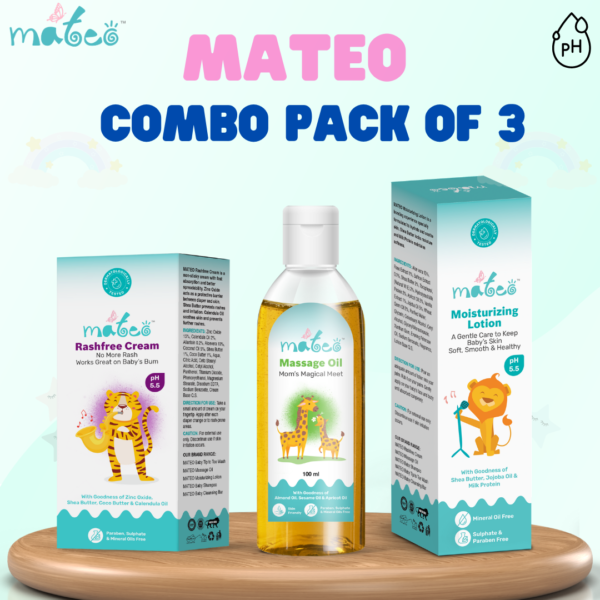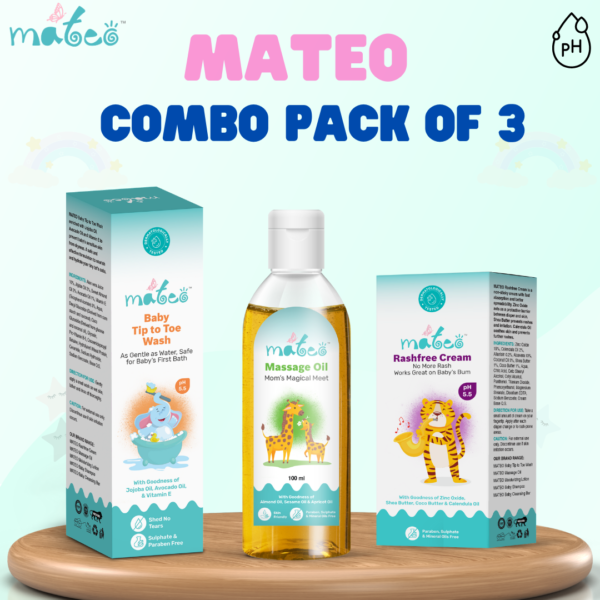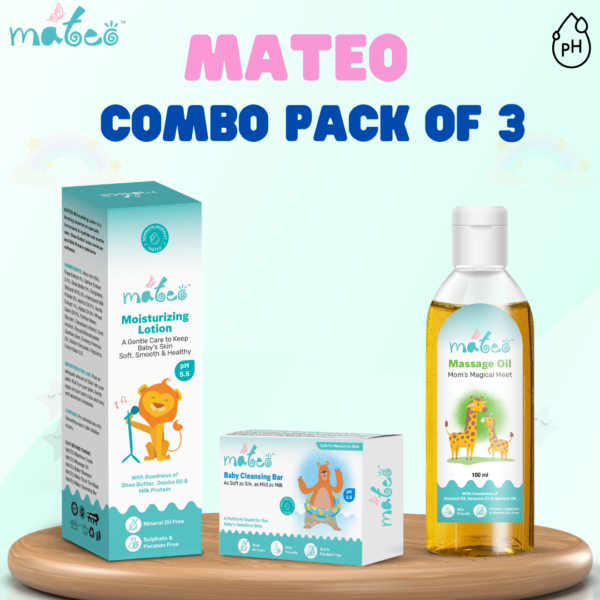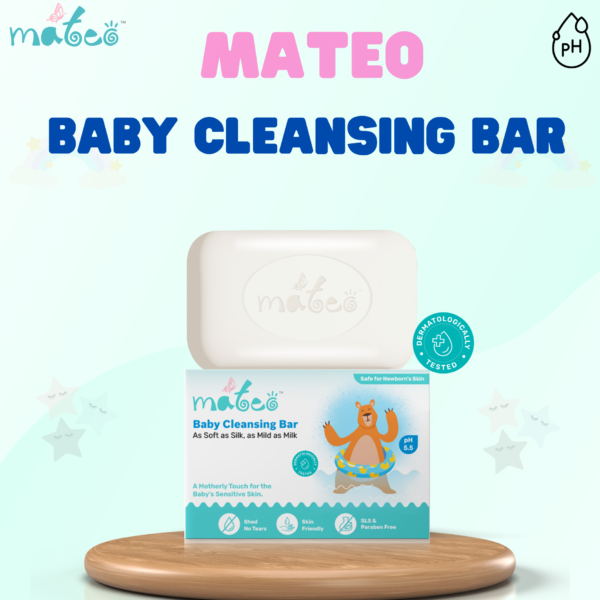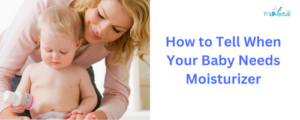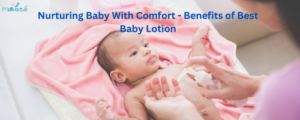- Understanding Baby Hair Care
- Initiating Hair Care for Newborns
- How often should you wash your baby’s hair?
- Selecting the Best Baby Shampoo For Hair Growth
- Shampooing Methods That Work
- Additional Hair Care Insights
- Concluding Thoughts
- FAQs
Welcoming a newborn into the world brings immense joy, along with a flurry of responsibilities. Among the many aspects of caring for your little one, tending to their delicate skin and hair often stands out as a concern. As a new parent, understanding how to best care for your baby’s hair, when to start baby shampoo, and how often to do so can feel like navigating uncharted territory.
Understanding Baby Hair Care
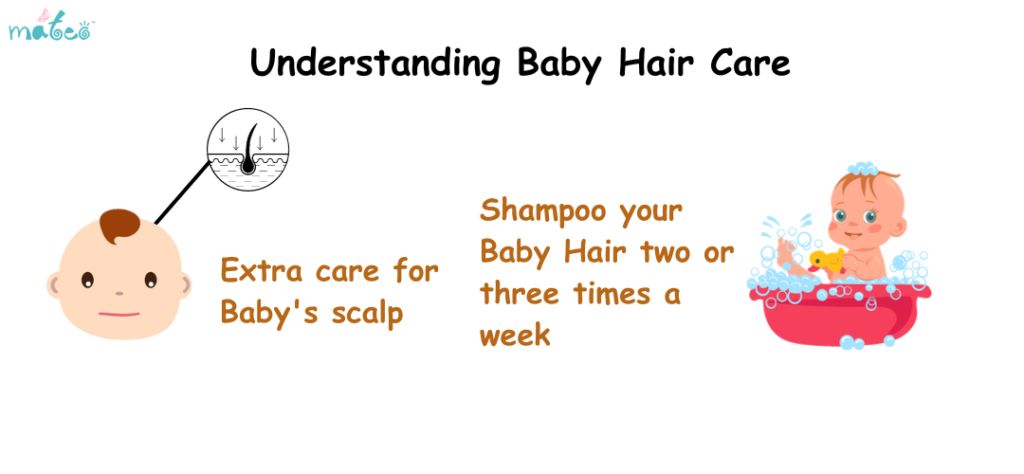
The delicate condition of a baby’s scalp necessitates extra care. According to research, newborns’ hair does not collect dirt as quickly as adults’, thus daily cleaning is not required. Experts recommend shampoo for baby’s hair no more than two or three times a week to preserve the delicate balance of moisture and oils unless specific conditions require more scrubbing.
Initiating Hair Care for Newborns
A newborn’s scalp is extremely fragile during the first few weeks after birth and does not require washing. Instead, a delicate touch with a moist towel is all that is required to clean the scalp. The best baby shampoo for hair growth is usually recommended after roughly a month. A modest amount of mild shampoo diluted in water allows for excellent washing without taking away natural oils.
How often should you wash your baby’s hair?
Factors like the thickness of the baby’s hair, their activity levels, and sweat production play roles in determining how often hair washing is needed. Infants with less hair might not require frequent washing compared to those with fuller heads of hair that might accumulate more sweat.
As babies become more mobile, exploring and engaging in activities, more regular washing with chemical-free baby shampoo might become necessary. However, daily washing remains uncommon even as they become more active.
Selecting the Best Baby Shampoo For Hair Growth
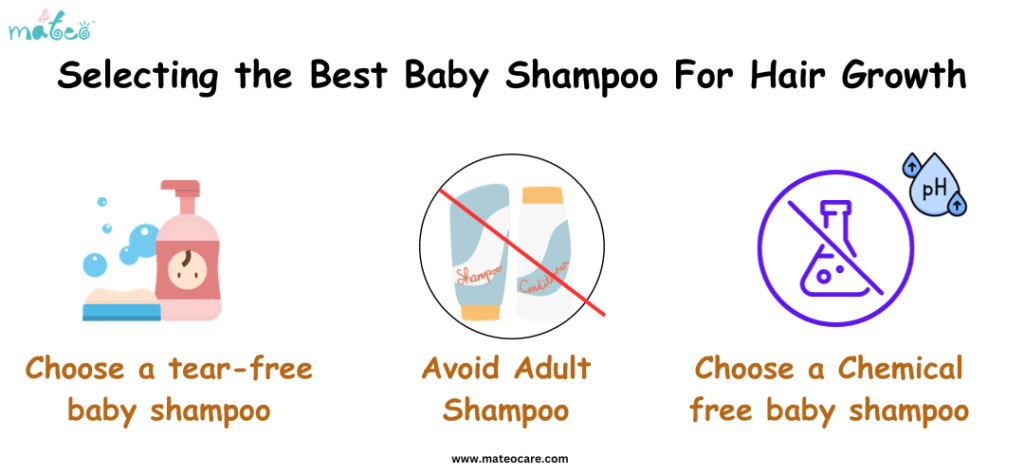
It is critical to select the right baby shampoo for hair growth. Choose a tear-free baby shampoo that is specially made for babies. Adult shampoos with sulphates and harsh chemicals should be avoided since they are too harsh on a baby’s fragile scalp. Choose a chemical-free baby shampoo with a low pH 5.5 to enable good washing without tangling or drying.
Shampooing Methods That Work
When bathing your baby’s scalp, use gentleness. It is advisable to lightly massage the shampoo into the scalp and hair, rather than vigorously rubbing, which might harm the sensitive skin and hair. Regardless of claims of tear-free baby shampoo formulas, it’s critical to keep shampoo out of your baby’s eyes. Rinsing with clean water many times is suggested in the event of inadvertent contact.
Additional Hair Care Insights
Applying oil to your baby’s hair before shampooing helps preserve moisture and encourages healthy hair development. After shampooing, gently pat dry your baby’s head without forceful rubbing. Using a soft-bristled brush or a baby comb to gently detangle hair should be done with care to avoid causing discomfort to the infant.
Managing Resistance
Some newborns actively oppose having their hair washed. Distractions like toys or colourful things in the bathing area might help to ease this procedure. Involving a willing sibling in the bath may help transform shampoo time into a game.
Cradle Cap and Beyond
Cradle cap, a common dandruff-like condition in newborns, is harmless but may be handled with frequent cleaning, which can be improved by softening the scales with oil or petroleum jelly before a bath.
Aside from cradle cap, daily hair washing may help avoid disorders like ringworm and dandruff, maintaining a clean and healthy scalp for your infant.
Mateo Rashfree Cream is a great treatment for cradle caps. This lotion is specially developed with soothing ingredients to soothe and treat the symptoms of cradle cap. Mateo Rashfree Cream is well-known for its delicate yet effective technique of softening the scales on the baby’s scalp and making them easier to remove during bath time. Because of its soft composition, it is appropriate for sensitive newborn skin, providing relief and relaxation while addressing cradle cap issues.
Concluding Thoughts
While keeping a clean environment is essential for newborn care, cleaning your baby too often can cause discomforts including itchy scalps and hair loss. The secret to maintaining that tiny tuft of hair on your baby’s head clean and healthy is to be aware of their individual needs and to follow a gentle and healthy care routine.
As each infant is unique, what suits one may not necessarily suit another. To give your baby’s priceless locks the greatest care possible, watch how they respond and adjust your approach accordingly. While you traverse this road of taking care of your child, keep in mind that nourishing their fragile hair and scalp requires patience and sensitive care.
Frequently Asked Questions
1. What is the appropriate time to shampoo my newborn’s hair?
Given how delicate their scalp is, newborns don’t require regular shampooing. You only need to give your scalp a quick wipe down with a moist cloth in the first few weeks after delivery to maintain sanitation. Generally speaking, shampooing should begin after about a month. Use a gentle shampoo diluted in water to provide perfect cleansing without stripping natural oils.
2. How frequently should my infant’s hair be washed?
Given that newborns’ hair doesn’t gather filth as quickly as an adult’s, experts advise washing a baby’s hair no more than twice or three times each week. The amount of activity, perspiration production, and infant hair thickness are some of the variables that might affect how often the baby should be washed. Though daily bathing is rare even for busy newborns, babies with less hair might not need as much frequent cleaning as more active babies could.
3. What is the best way to treat a cradle cap?
Babies frequently get cradle cap, which is a dandruff-like disease that causes scaly areas on the scalp. Although it poses no threat, maintaining it calls for frequent cleaning, occasionally with the use of mild treatments like Mateo Rashfree Cream. The purpose of this specially designed lotion is to help babies with cradle caps by softening their scalp’s scales, which will make them simpler to remove after washing. Its mild formula is good for sensitive infant skin, providing comfort while it takes care of cradle cap issues.

Nivethitha Sridharan
Nivethitha is a mother of two children and has a great interest in writing as an experienced mother. She publishes educational and interesting articles on baby care and also assists parents in selecting the finest baby products for their baby’s skin and well-being. She focuses on infant skin care and health issues. She also provides suggestions and guidance on baby care and avoids common skin disorders in newborns. Nivethitha likes studying and writing about new and innovative ideas that might assist people in finding solutions to their problems. She feels that content writing is an effective means of communicating thoughts and information to the world.
-
Mateo All in One Pack
Add to basket₹1,700.00 -
Mateo Baby Body Wash – 200 ml (Pack of 2)
Add to basket₹790.00 -
Mateo Baby Care Collection – Mateo Baby Massage Oil(100ml), Mateo Baby cleansing bar(75gm), Mateo Baby Shampoo(200ml)
Add to basket₹775.00 -
Mateo Baby Care Collection – Mateo Baby Moisturizing Lotion(200ml), Baby Cleansing Bar(75gm), Baby Shampoo(200ml)
Add to basket₹930.00 -
Mateo Baby Care Collection – Mateo Baby Moisturizing Lotion(200ml), Mateo Baby Body Wash(200ml), and Mateo Baby Rashfree Cream(60gm)
Add to basket₹925.00 -
Mateo Baby Care Collection – Mateo Moisturising Lotion(200ml)+ Mateo Baby Rashfree Cream(60g) + Mateo Baby Massage Oil(100ml)
Add to basket₹725.00 -
Mateo Baby Care Collection-Mateo Baby Body Wash(2ooml), Baby Rashfree Cream(60gm), Baby Massage Oil(100ml)
Add to basket₹770.00 -
Mateo Baby Care Collection-Mateo baby moisturizing lotion(200ml), Baby cleansing bar(75gm), Baby massage Oil(100ml)
Add to basket₹730.00 -
Mateo Baby Cleansing Bar
Add to basket₹185.00
